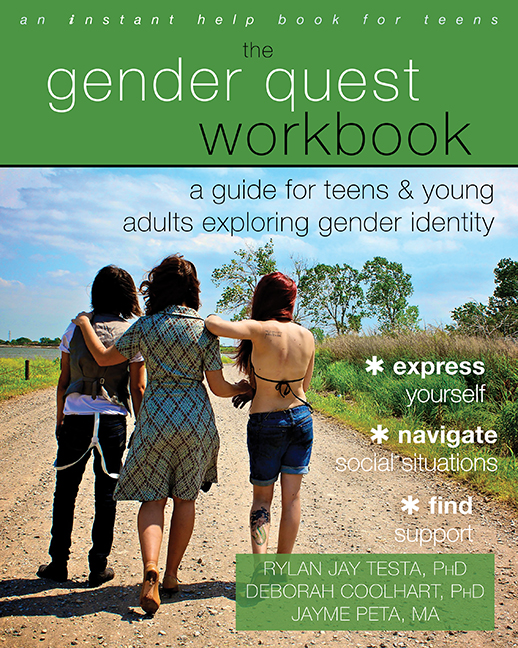By Deborah Coolhart, PhD, LMFT
As trans identities are becoming more visible in our society, more people are exploring their own gender identity. Some clients may express this gender exploration verbally, whereas other clients may be experimenting with clothing, makeup, hair, et cetera, that has traditionally been associated with another gender. Either way, therapy is an ideal space to explore gender. Here are some tips for supporting your clients in this process:
- Know Thyself. You may or may not have clinical and/or life experiences with trans people. It is important you explore your own biases and take a trans-affirmative approach. Your client has likely already experienced shame, pain, disapproval, or mistreatment because of gender, and you want to be a part of the healing—not part of the problem.
- Support the Gender Journey. Ask direct questions about when your client first remembers feeling different, how others have responded to their gender expressions, how your client understands or labels their gender identity, and what they wish for in their gender future. Helping clients deconstruct internalized messages of gender shame is often an important part of this process.
- Build Systems of Support. Trans people often experience increased discrimination—making support a vital part of their resilience. Involving families in therapy may be helpful in increasing support, and building systems of support outside of family may be helpful or even necessary.
- Discuss Safety and Coming Out. If your client is navigating a coming-out process, discuss various options for coming out and safety in each situation. While coming out can be relieving and exciting, it is important that safety plans are in place if needed.
Exploring gender can be difficult at times; however, it can be very rewarding to support clients while they discover and express their most authentic self.
 Deborah Coolhart, PhD, LMFT, is a licensed marriage and family therapist, and assistant professor at the Syracuse University Marriage and Family Therapy program. Her clinical and scholarly work focuses on the strengths and challenges of transgender people and their loved ones, and she has published several journal articles and book chapters on transgender-related topics. Coolhart created a clinical team of master’s students who work specifically with transgender clients, their partners, and their families in a free university clinic—providing a valuable service to the transgender community in New York.
Deborah Coolhart, PhD, LMFT, is a licensed marriage and family therapist, and assistant professor at the Syracuse University Marriage and Family Therapy program. Her clinical and scholarly work focuses on the strengths and challenges of transgender people and their loved ones, and she has published several journal articles and book chapters on transgender-related topics. Coolhart created a clinical team of master’s students who work specifically with transgender clients, their partners, and their families in a free university clinic—providing a valuable service to the transgender community in New York.


 2024 Peace Playbook: 3 Tactics to Avoid Clashes with Your Partner
2024 Peace Playbook: 3 Tactics to Avoid Clashes with Your Partner